Additional bed space is required to reduce A&E patient wait times and ambulance response times, and positively impact wider areas of the hospital. In the face of such urgent need, rapidly deployed solutions are needed.
Flexible Healthcare Spaces, such as wards and Minor Injury Units (MIUs) can be quickly located and commissioned outside the main emergency department to create additional capacity. These can be designed bespoke to the needs of the hospital, ensuring that unique, urgent needs are met. The regenerative nature of these solutions provides a significant additional benefit. Once the Winter pressure has eased, these facilities can be easily transformed, moved or replaced to meet the next highest priority, perhaps addressing backlogs in endoscopy and elective surgery.
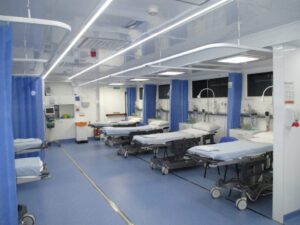
Q-bital Healthcare Solutions has experience of successfully installing facilities to augment A&E capacity. A clinic was installed at Southmead Hospital to address the looming winter pressures and ever-increasing strains on hospital capacity across the board, aggravated by the ongoing COVID-19 pandemic. North Bristol NHS Trust sought a fast and efficient solution to expand the main A&E department. This consisted of a patient waiting area, consultation rooms, a plaster room, clean and dirty utility rooms, a toilet and cleaning store. The clinical design of the facility enhanced patient flow and contributed to a substantial decrease in A&E waiting times at the hospital. Facilities such as the one used at Southmead can be receiving patients within weeks of the first enquiry.
As was the case with Southmead Hospital, flexible Healthcare Spaces not only alleviate stresses on the main A&E department but also have a positive knock-on effect on wider areas of the hospital. The BMA has expounded on this issue and the impact that it has on the entire hospital, not just A&E departments, through illustrating a patient journey: An emergency patient has arrived at a room suite directly from the ambulance. Because the ambulance is unable to decant the patient to A&E, the patient is likely to be missing key items from their mandatory room checklist (for example, compression socks), causing delay in the CEPOD emergency room list whilst additional staff and resources are needed to ensure the patient is ready for room. If there had been additional bed space within the main A&E department for the ambulance to decant into, the patient, under equipped and unprepared for surgery, wouldn’t have had to occupy critical surgical bed space and therefore delay future elective surgeries.
Shortage of bed space is perhaps most acutely felt and most often highlighted in A&E but is a problem throughout an NHS trust, with each department’s shortage having a knock-on effect on other areas. A lack of social care exacerbates the situation. If a care package is not in place, it may be decided that someone who is medically well enough to leave hospital is safer staying put. Q-bital Healthcare Spaces can provide additional flexibility, the benefits of which are seen throughout the trust.
Q-bital provides mobile and modular facilities. Mobiles can be commissioned within a few weeks of being ordered and be in place for extended periods or swapped with another mobile unit as requirements change. Modular facilities are built to the customers specification. They have infinite range in size and complexity and can be completed within months, much more quickly than facilities built using traditional methods of construction.
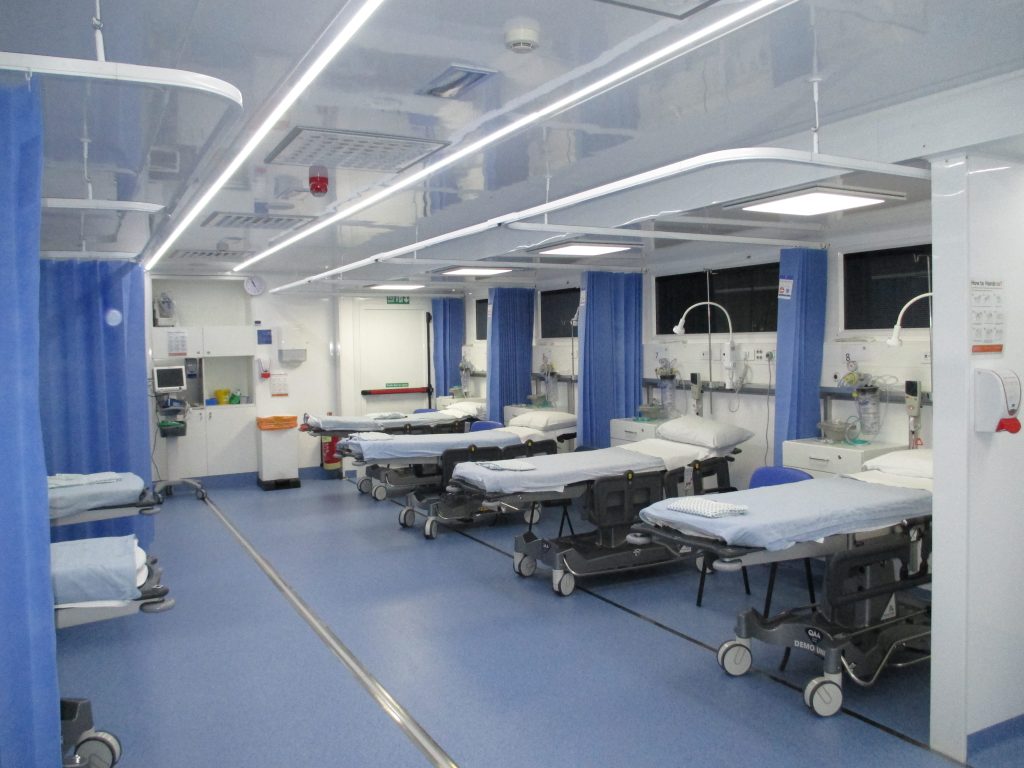
The best fit for a hospital’s requirements may be achieved by combining modular and mobile elements. Q-bital installed a mixed-modality solution for the Royal Infirmary of Edinburgh in 2019, when the hospital’s management found people were waiting in A&E with conditions that could be treated elsewhere in the healthcare system. Close to the A&E department, Q-bital provided a Minor Injury Unit (MIU) using a mobile laminar flow operating room in combination with modular buildings which housed a reception and waiting area, treatment rooms, clean and dirty utility spaces and a changing room. An important requirement was for the unit to be accessible from the existing A&E department, something which was achieved through the construction of a purpose-built walkway bringing the two departments together.
Once installed, the facility had an immediate positive impact. Within its first hour more than 20 patients were diverted from A&E. Daily, between 80 and 100 patients were being treated in the MIU for a range of minor injuries such as fractures, soft tissue injuries and bites. The on-site MIU has reduced the amount of time people are waiting to be seen, and relieved pressure on bed spaces in the main hospital.
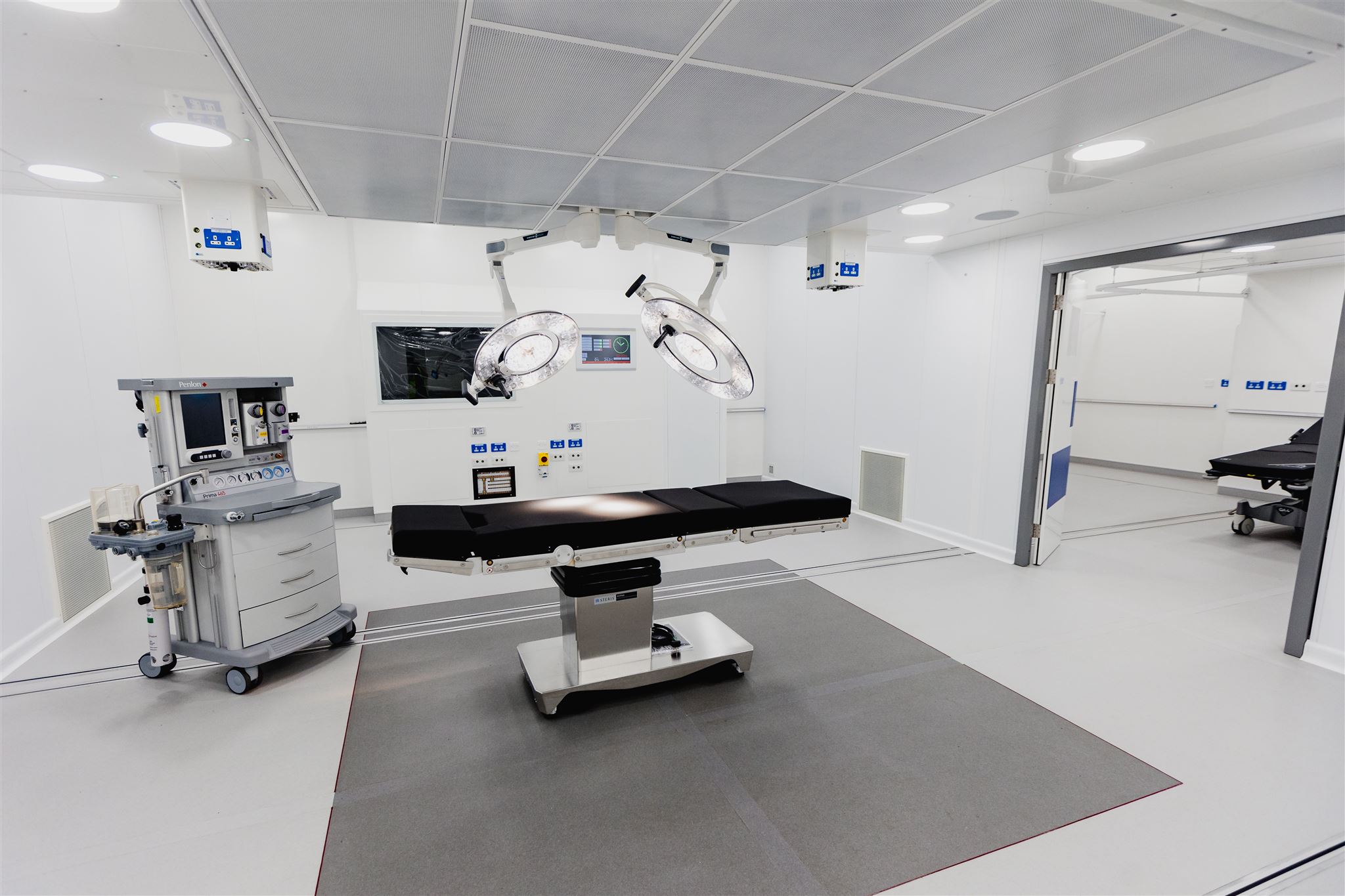
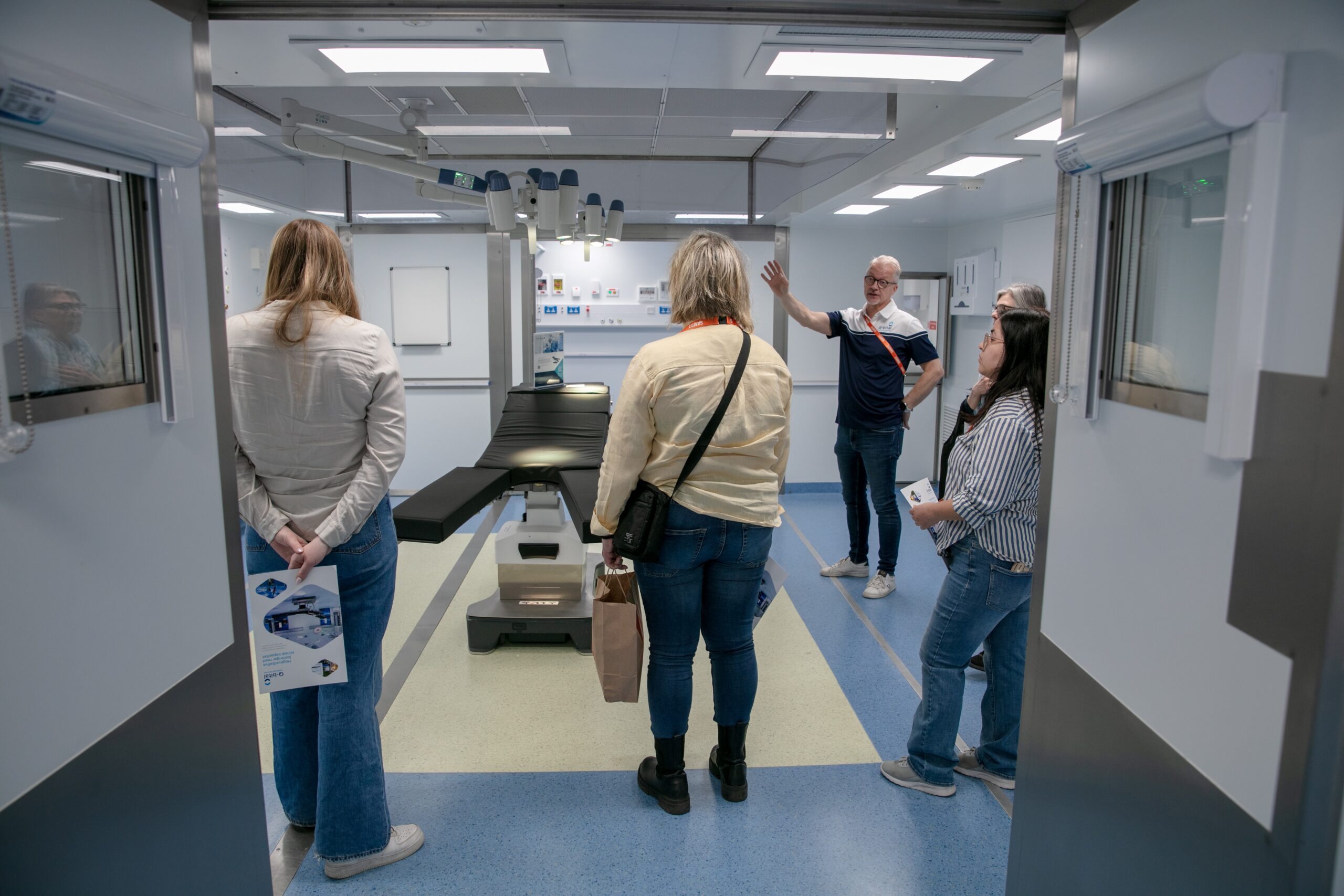
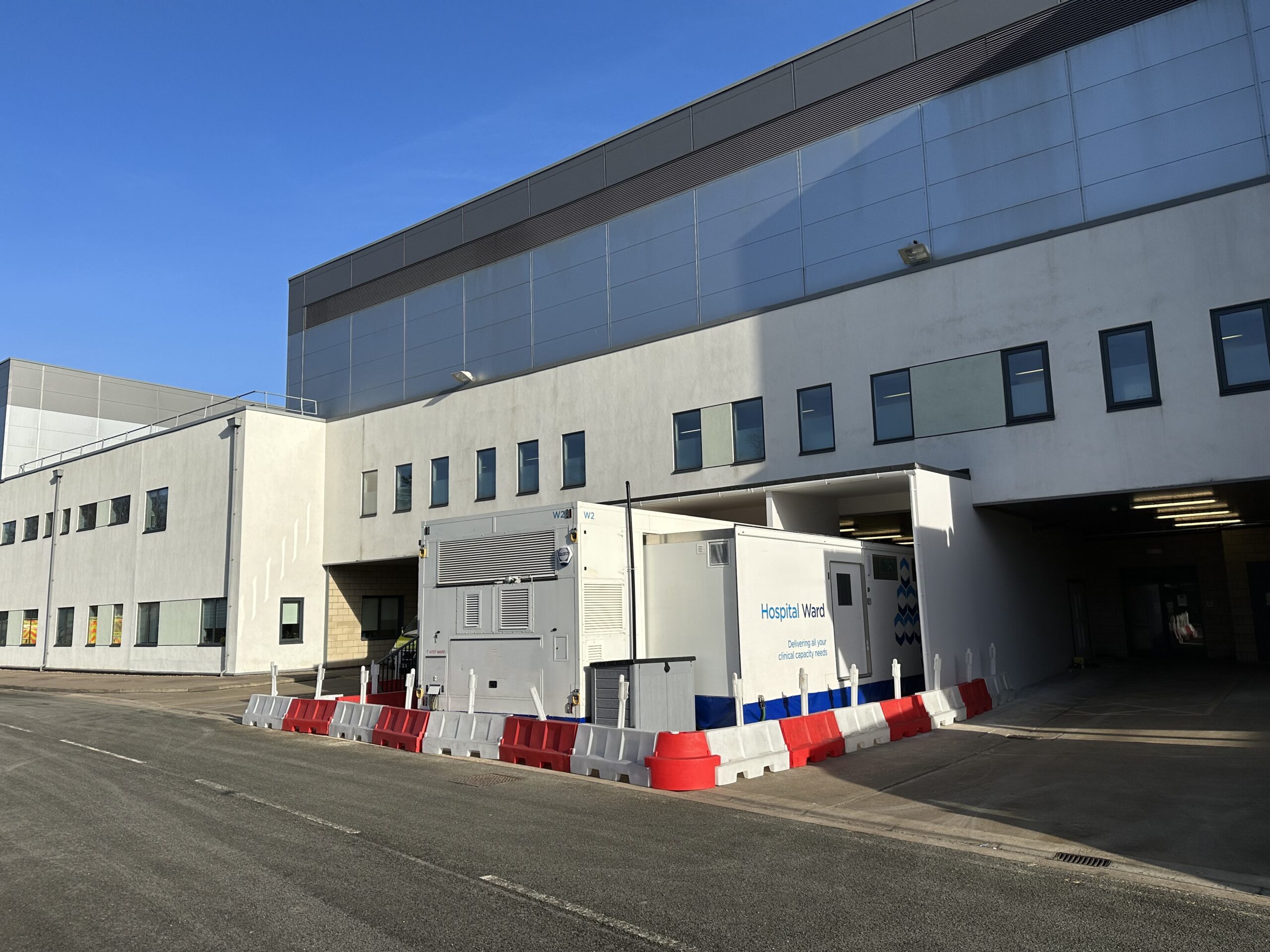
Q-bital Healthcare Solutions
Unit 1144 Regent Court, The Square, Gloucester Business Park, Gloucester, GL3 4AD
